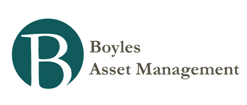No Shortcuts to Greatness - By Vitaliy Katsenelson
Nothing defined Alan Greenspan’s tenure as chairman of the Federal Reserve Bank more than his wholehearted embrace of capitalism. With early roots in his 30-year association with the novelist and philosopher Ayn Rand, that faith grew into an unconstrained confidence in the free market and deregulation to steer the economy and ward off crises.
According to a current Fed governor, however, both Greenspan’s Fed and the Fed today have not been the stalwarts of capitalism that the Maestro believed them to be.
On March 7th, I had the great pleasure of listening to Thomas Hoenig speak at the Colorado CFA Society forecast dinner. Hoenig, the only member of the Federal Reserve Board of Governors who I respect, is the board’s lone rational dissenting voice.
After his speech, a lengthy Q&A, and a short conversation with him, I left the event even more impressed with him.
Hoeing was equally critical of both the Fed’s zero-interest rate policy and of QE2. He said these policies encourage speculation and don’t allow for price discovery, and consequently they lead to imbalances, unintended consequences, and misallocation of resources.
He said it is important to judge QE2’s success over the right time frame, one long enough to encompass not just its stimulative benefits but also its consequences. (In other words, there is a good reason why we don’t judge steroids solely based on what they do for an athlete’s performance during the race, ignoring the strokes and other health problems they often cause after the race).
Throughout his speech, Hoenig warned that there are no shortcuts to greatness in monetary policy. The Fed’s intervention in the economy will have unintended consequences, and it is impossible to know where they’ll show up.
- Hussman Weekly Market Comment: Baby Steps
“The events of the past decade demonstrate the enormous human costs of asset price bubbles and crashes.” – San Francisco Fed President John Williams, September 2013 And yet, here we are again. The Federal Reserve has now enabled the creation of...
- Gr-neam Reflections: 03/01/2013 - Better Late Than Never
Jeremy Stein of the Federal Reserve Board of Governors recently spoke on the subject of unintended consequences of unconventional monetary policy. The Fed thus begins to admit that the observations of capital markets observers have a point. ...
- John Mauldin: Qe Infinity: Unintended Consequences
There is an intense debate going on in the first-class cabin of Economics Airlines about the direction in which our plane should be pointed. And while those of us back in the cheap seats don't get to help decide, knowing where we will land is of intense...
- John Mauldin: The Consequences Of Easy Monetary Policy
"No very deep knowledge of economics is usually needed for grasping the immediate effects of a measure; but the task of economics is to foretell the remoter effects, and so to allow us to avoid such acts as attempt to remedy a present ill by sowing the...
- Video: Fed's Hoenig On Monetary Policy, U.s. Economy
Aug. 25 (Bloomberg) -- Federal Reserve Bank of Kansas City President Thomas Hoenig talks with Bloomberg's Michael McKee about the Fed's ability to help the U.S. economy. Hoenig says there's a limit to how much more the central bank can do...

